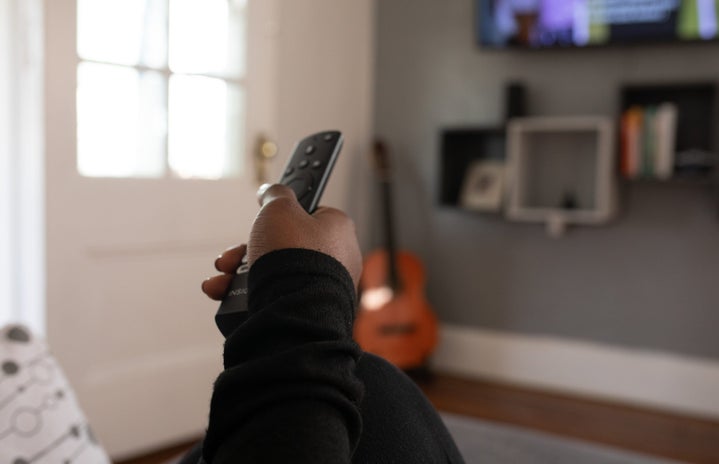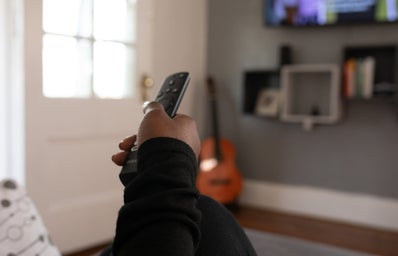‘Music’ was released in early February 2021, directed by world-renowned musician Sia. Best known for her chart hits Chandelier, Titanium & Elastic Heart. ‘Music’ is an American musical drama starring Kate Hudson as ‘Kazu’ – a newly sober drug dealer, who has become the legal guardian of her younger- half-sister, a significantly autistic teenager who is curiously named Music (played by Maddie Ziegler). According to Google, “the film explores two of Sia’s favourite themes: finding your voice and creating a family”.
https://www.youtube.com/watch?v=e0IVWsxOGOI
Since its release on online streaming services, Music has riled its audiences up with its controversial subject matter and representations, being particularly widely criticized for its ableism and blackface. NYP headlined the film ‘Unwatchable and Offensive‘ with its main objections stemming from its distasteful representation of autism. NME, one of the biggest brand names in the music industry, released an article supporting Autism Rights activists, promoting their petition to cancel the film. It’s not to say autism and mental illness are taboo and upsetting to depict in the film; for example, DeCaprio handles the characteristic trait well in What’s Eating Gilbert Grape (1993), or Dustin Hoffman’s depiction of Raymond Babbitt in Rain Man (1988). In terms of its production values, the film is quite praiseworthy and uses the camera, colour, and editing in interesting ways. But good arthouse cinema is supposed to stress seriousness over entertainment, which might explain why the film fails in this department. So what is it that Music gets so wrong here? I’ve broken it down into four key points:
Performance Representation of Autism
It wouldn’t be an error to suggest that there’s something quite troubling, even disturbing with how Maddie handles her performance of autism. Twisting and contorting her body, gaping her mouth and the frantic eye movements make for uncomfortable viewing. Not because viewers aren’t brave enough to see this level of autism depicted on screen, but because her particular performance is never genuine enough to create empathy from us. The restraining of her character in certain scenes has also created a backlash in viewers, leading to Sia removing these depictions from any further printings of the film. Even her costume seems to simulate a certain distastefulness in its handling and stereotyping of her character and autism. Often dressed in all white, she gives the impression of someone ‘fresh out the mental asylum’, adding to her already tongue-in-cheek, estranged performance.
Casting
Casting a famous Dance Mom’s (2011) personality with no tenuously visible link to autism might raise a few eyebrows. Still, it comes off as even more audacious and vain given the performance backing this up. That’s not to say that another famous actor couldn’t tackle this character, but they’d have to do it very convincingly. Unfortunately for Maddie, whose already typecast as a reality personality, the realism and emotional connection are never truly established in any convincing way. The casting is also disappointing as it’s a missed opportunity. From the National Autistic Society, Jane Harris told Newsround: “We know and have worked with many talented autistic actors,, and we think they should have had a chance to play the part of an autistic character.” BBC stated that Sia did attempt to cast “special abilities kids” to work on the film, including one girl on the autistic spectrum, but ended up recasting Maddie – perhaps she missed an opportunity here.
What’s with the dream sequences?
Another point of criticism with the film is its use of hallucinogenic dream sequences that are supposed to represent the inner workings of Music’s mind. The musical genre itself is arguably at fault here as being a wrong choice of ‘font’ to dress the subject of autism in. Aside from being completely bizarre with its pantomime-esque displays, resembling an LSD-drenched music video, these scenes do little to further our understanding of the character of autism in general. They seem to only serve as an excuse to promote some of Sia’s music and come across as far too detached, unconvincing, and unrelatable in their rendering of the disabilities psychology. This further adds to the film’s handling of autism as a distasteful and audacious one, building a caricature out of something that should have been handled with a little more care. Additionally, these scenes are exactly the sort of imagery that might be triggering for audience members with autism. As Jensen and Kataja point out: “Despite making the movie ‘for’ autistic people, Sia has made it in such a way that a majority of us will be unable to watch it”.
Blackface
You can tell a lot about a film’s agenda from its opening shot. So what does Music establish with its first few images? It may not be intentional, but the implications of autism (as rendered through dreams) on offer here are ones of absurdism, of ‘the exotic”, and otherness. As first impressions go, this sets the film off on an awkward foot, making a song and dance of autism and its handling of its subject as being incomprehensible. Socially forward-thinking viewers who agree autism should be treated with acceptance, inclusion, and awareness will find this alienating and nightmarish opening to be the wrong approach here. Particularly controversial is the deliberate and intentional ‘exotification’ of Maddie, who is shown in very dark make-up and dreaded hair. One Twitter user put it bluntly, writing, “So they also put @maddieziegler in blackface”. Combined with the bright yellow set and the frantic dance moves, it seems to give an uneasy fetishization with otherness. It suggests there is something a little bit taboo going on here – as though mental disability is being represented as being akin to having a hoodoo bewitching. In any case, the problem is that the film’s opening shots do the reverse of what Sia was intending. Far from shedding any light on autism, it distances and shames it, and it comes off as a freak show that turns the film’s ableist agenda on its head.
There’s plenty of other things to take issue with within this film. Still, these top four points combined are the main shortfallings for Music because they collectively work to sever the audience’s empathetic connection with its lead character. Mental disability should be handled with extreme sensitivity, but what we’re left with by the end of Sia’s film is an uncompassionate spectacle of autism that fails to deliver on this point. As the late great Roger Ebert would say, “Movies that encourage empathy are more effective than those that objectify problems.” But it’s not just ineffective; It’s this objectification itself of autism that comes across as distasteful. Regardless of this unpalatableness and ending on an ironically positive note, it’s because of these failings that the film has generated many discussions and thinking on the matters of autism, ableism and representation. However, at least it’s opened up a debate on the subject, even if its starting point is how not to handle these issues. If you are interested to see this misguided film for yourself and make your own judgment on it, you can purchase a digital copy through the following links:



